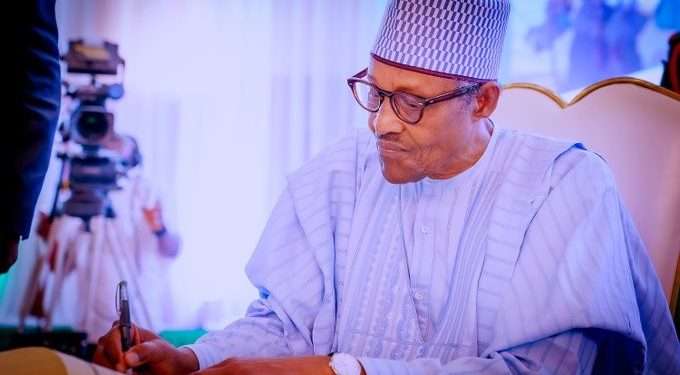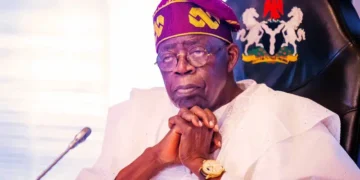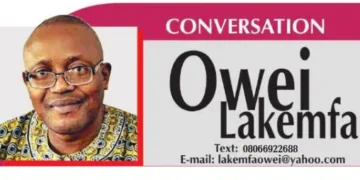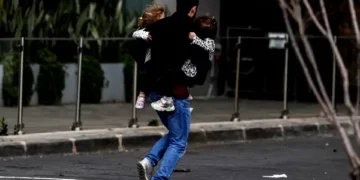On Friday, Nigerian President Muhammadu Buhari is scheduled to make a decision as the country, which has the largest economy in Africa, fights a cash crisis. This comes on the same day that the Central Bank of Nigeria is due to begin phasing out the usage of older notes.
Mr Buhari is calling an emergency meeting of the National Council of State in order to tackle critical issues that are hurting the nation, such as the crisis in the country’s currency and the lack of gasoline. The preparations that have been made for the general election will also be discussed at this meeting.
Last week, the president acknowledged “hardship” in the country but urged citizens to give him seven days to resolve the cash crunch that has crippled businesses, caused suffering, and triggered protests across the country. The cash crunch has crippled businesses; has caused suffering; and it has triggered protests across the country.
It has been difficult for many people in Nigeria’s cash-based informal economy to conduct business, make payments, and take advantage of certain services as a result of the currency swap policy and the shortage of the new notes, both of which have been criticised by a significant number of the country’s residents.
Because of the haphazard introduction of the new naira design, millions of Nigerians have been left stuck, and some of them have been forced to sleep at ATM units. In some Nigerian towns, residents are permitted to withdraw a maximum of 20,000 naira from bank ATMs, however, in many other regions of the nation, these machines are unable to dispense cash.
The shortage of cash has also put a strain on the infrastructure that processes digital payments since more consumers are turning to online transfers. As a result, transactions are taking hours to complete or are failing entirely.
In the midst of these operational issues, a poll conducted by NEWS MEN, revealed that transaction fees charged at the Point of Sale (PoS) increased by 400% in the majority of cities throughout the nation over the previous week.
On Friday, the president is expected to make a decision, and many Nigerians are calling for the currency swap policy to be put on hold immediately and only resumed after the equivalent amount of money that has been removed from circulation has been printed and is available to replace the old currency notes. This call comes as the president is expected to make his decision.
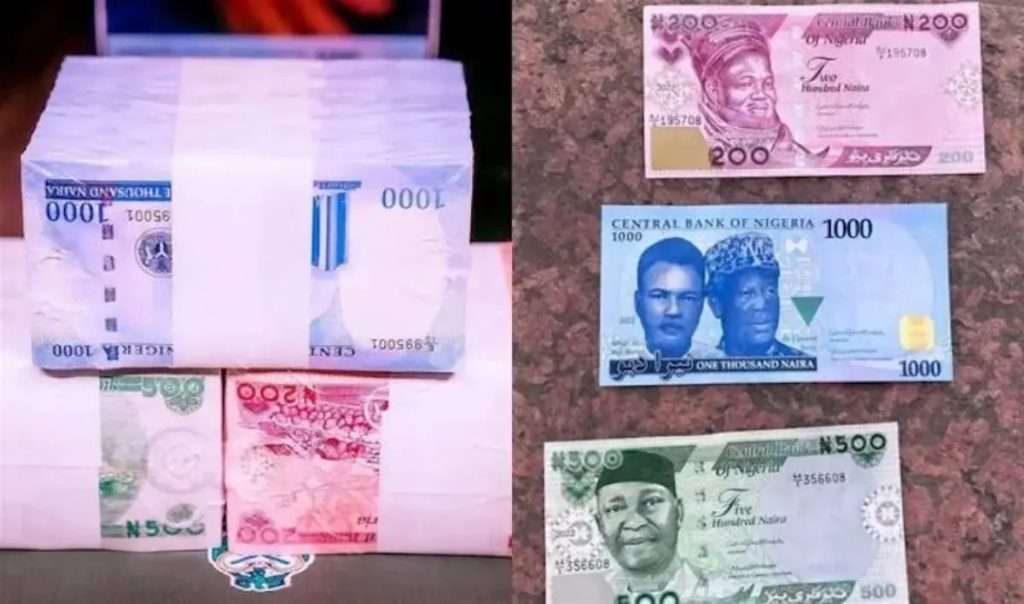
On October 26, 2022, the Central Bank of Nigeria (CBN) made an announcement on the redesign of the 200, 500, and 1,000 naira notes that will be introduced into circulation. After some time, the currency was finally introduced in November, and on December 15th, 2022, the newly printed notes were put into circulation.
Additionally, the nation’s central bank imposed a limit of N100,000 per week for individuals and N500,000 per week for companies on the number of new banknotes that may be withdrawn. Following concerns voiced by experts that the withdrawal restrictions were too low and would place an undue burden on Nigerians, the central bank increased the limitations, increasing the limit for individuals to N500,000 per week and increasing the limit for businesses to N5 million per week.
However, a large number of Nigerians and concerned organisations voiced their opposition to the idea. The Nigerian Governors Forum and federal politicians have both urged for the policy to be suspended, at the very least until after the elections for general office scheduled for 2023.
The Central Bank of Nigeria (CBN) caved into criticism from a large number of Nigerians and delayed the deadline for phasing out the old notes from January 31 to February 10. Despite the extension, a large number of Nigerians have been forced to rush to obtain the new notes, while others have bemoaned the fact that they are unable to withdraw the money they have laboriously earned from their bank accounts.
According to the bank officials, they have not received nearly enough N2 trillion to replace the old ones that have been gathered. Banks in Nigeria have been accused of hoarding new money by anti-corruption officials.
Uncertainties
Amidst the chaos, a news correspondent stated that the Central Bank of Nigeria’s (CBN) supply of replacement notes has been drastically inadequate, making it impossible for commercial banks to satisfy clients’ needs.
But Central Bank Governor Godwin Emefiele defended the policy, saying it was necessary to combat counterfeiting, abduction, corruption, money laundering, and other sorts of illegal financial activities. Additionally, he said that the measure will put an end to vote-buying in advance of the 2023 elections.
Finance Minister Zainab Ahmed chimed in to call the programme a “success,” noting that it has resulted in the deposit of trillions of naira into the banking system, which the government hopes would encourage the use of electronic payment systems, reduce inflation, and reduce corruption.
The only negative is the suffering it has inflicted on the public, Ms Ahmed remarked.
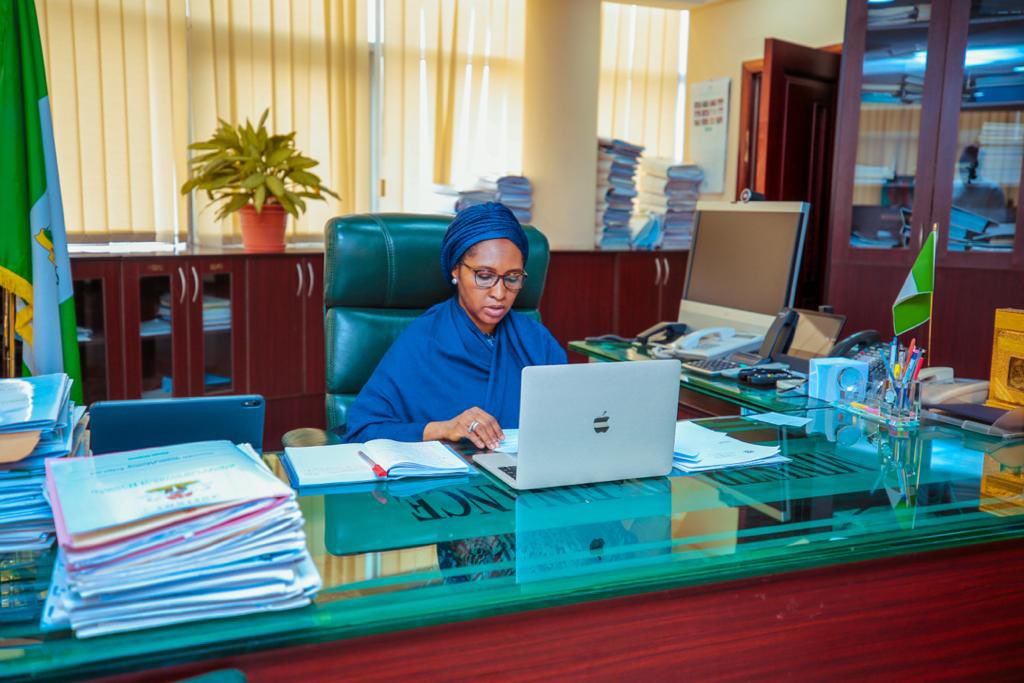
This mounting catastrophe, however, has taken on a political tone in the run-up to the presidential elections in less than two weeks. The presidential candidate for the APC, Bola Tinubu, has stated that the idea to redesign the naira is an attempt to undermine or postpone the elections.
Atiku Abubakar, of the main opposition PDP, called on the CBN not to grant any further extensions beyond 10 February, while Peter Obi, of the Labour Party, urged Nigerians to be “patient with the CBN and Federal Government in the hope that the general populace and Nigeria will harvest the gains that will come with the reforms.”
While this was going on, the governments of Kogi, Kaduna, and Zamfara States sued the federal government, claiming that the shortage of replacement notes was creating extreme hardship and that “insufficient and unreasonable time” had been given to finish the procedure.
On Wednesday, the Supreme Court issued a temporary restraining order preventing the CBN from carrying out the enforcement of its 10 February deadline for the usage of the old naira currency. A hearing was postponed until February 15 by the court.
In spite of the ambiguity, the central bank has not issued a statement about the Supreme Court’s decision.
The International Monetary Fund (IMF) demanded on Wednesday that the Nigerian government give the naira redesign programme additional time to be implemented because of “issues” with the implementation.
The IMF added that if issues persist in the next few days “despite steps made by the central bank to ameliorate the obstacles in the banknote swap procedure,” the central bank should think about extending the deadline.



